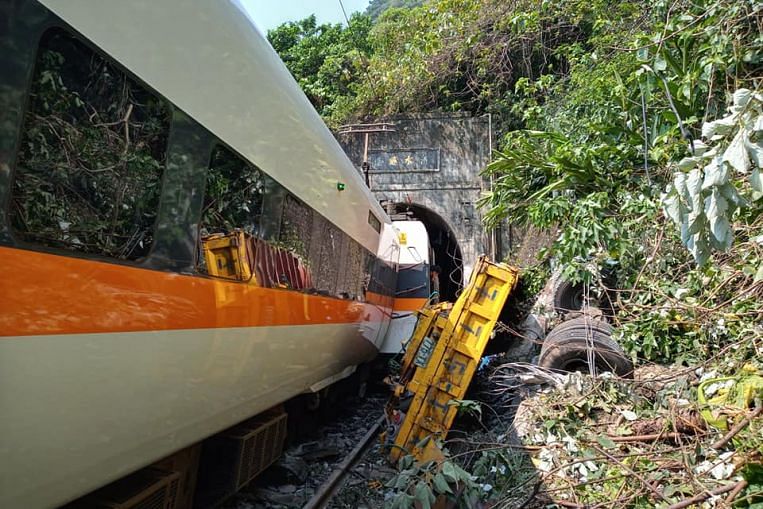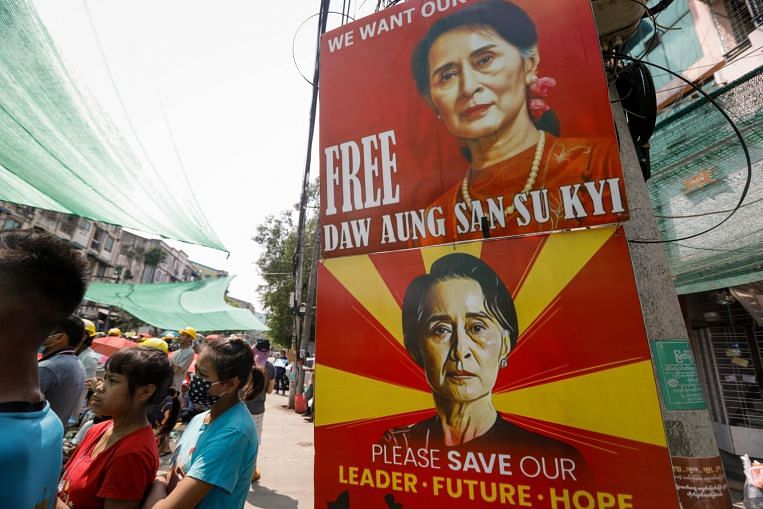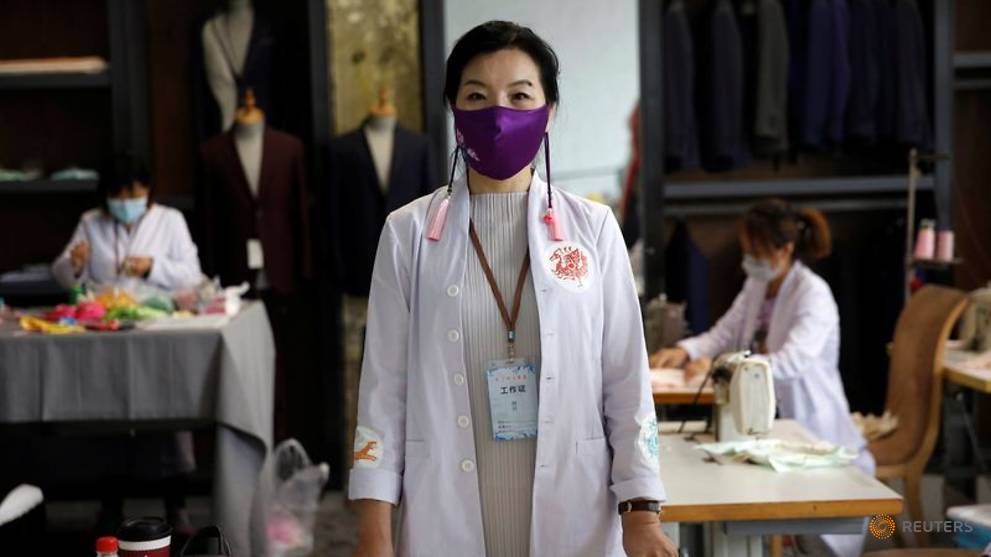TAIPEI: At least 48 people were killed and dozens more injured when a train derailed in a tunnel in Taiwan on Friday (Apr 2) after apparently hitting a truck, in the island's worst rail disaster in at least four decades.
The train, an express travelling from Taipei to Taitung carrying many tourists at the start of a long weekend, came off the rails north of Hualien in eastern Taiwan, the fire department said.
Images of the crash scene show carriages inside the tunnel ripped apart from the impact, while others crumpled, hindering rescuers reaching passengers.
Transport Minister Lin Chia-lung told reporters on the scene that the train was carrying about 490 people - higher than an earlier fire department figure of 350.
Taiwan's National Fire Agency said at least 48 people were confirmed dead with 66 others sent to hospital.
The accident occurred at about 9.30am.
A brief video released by the Central Emergency Operation Center inside the tunnel showed rescuers arriving on the scene and one twisted carriage door.
Another live broadcast by local news network UDN showed at least two undamaged train carriages outside the tunnel with rescuers helping passengers escape.
READ: Taiwan train was full when it crashed, passengers standing and thrown about: Reports

President Tsai Ing-wen's office said she had ordered hospitals to prepare for a mass casualty event.
"The top priority now is to rescue the stranded people," her office said in a statement.

Rescuers worked for hours to reach those trapped inside the tunnel and haul them out.
Footage released by the Taiwan Red Cross showed specialists with helmets and headlights walking on the roof of the stricken train inside the tunnel to reach survivors.
By mid-afternoon, officials said there were no people left inside the carriages.
Police said the accident was believed to have been caused by a construction vehicle sliding down an embankment and striking the train before it entered the tunnel.
"There was a construction vehicle that didn't park properly and slid onto the rail track," Hualien county police chief Tsai Ding-hsien told reporters.
"This is our initial understanding and we are clarifying the cause of the incident," he added.
Pictures from the scene showed the back of a yellow flatbed truck on its side next to the train.
"Our train crashed into a truck," one man said in a video aired on Taiwanese television, showing pictures of the wreckage. "The truck came falling down."
Part of the train was situated outside the tunnel, and those in carriages still in the tunnel were being led to safety, Taiwan's railway administration said.

Images showed an injured passenger being stretched out of the crash scene, her head and neck in a brace, passengers gathering suitcases and bags in a tilted, derailed carriage and others walking along the tracks littered with wreckage.
Some passengers walked out of the tunnel on the roof of the train, trailing their suitcases and bags behind, then climbed down between carriages to be greeted by rescuers.
"It felt like there was a sudden violent jolt and I found myself falling to the floor," an unidentified female survivor told the network.
"We broke the window to climb to the roof of the train to get out."
The accident occurred at the start of a long weekend for the traditional Tomb Sweeping Day holiday.
Taiwan's mountainous east coast is a popular tourist destination, and the railway line from Taipei down the east coast is renowned for its tunnels and route that hugs the coast just north of Hualien where the crash occurred.
The line connecting Taipei with Hualien was only opened in 1979.
In 2018, 18 people died and 175 were injured when a train derailed in northeastern Taiwan. The driver of the eight-carriage train was later charged with negligent homicide.
That crash was the island's worst since 1991, when 30 passengers were killed and 112 injured after two trains collided in Miaoli.
Thirty people were also killed in 1981 after a truck collided with a passenger train at a level crossing and sent coaches over a bridge in Hsinchu.
In 2003, 17 died and 156 were injured after a train on the Alishan mountain railway plunged into a chasm at the side of the track.
https://news.google.com/__i/rss/rd/articles/CBMib2h0dHBzOi8vd3d3LmNoYW5uZWxuZXdzYXNpYS5jb20vbmV3cy9hc2lhL3RhaXdhbi10cmFpbi1jYXJyeWluZy0zNTAtcGVvcGxlLWRlcmFpbHMtdHJ1Y2stcmVzY3VlLXR1bm5lbC0xNDU0MzY5NNIBAA?oc=5
2021-04-02 09:11:15Z
CBMib2h0dHBzOi8vd3d3LmNoYW5uZWxuZXdzYXNpYS5jb20vbmV3cy9hc2lhL3RhaXdhbi10cmFpbi1jYXJyeWluZy0zNTAtcGVvcGxlLWRlcmFpbHMtdHJ1Y2stcmVzY3VlLXR1bm5lbC0xNDU0MzY5NNIBAA



